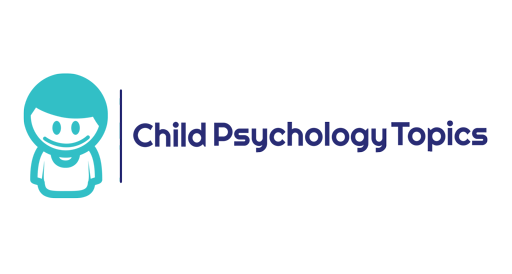Understanding the behavioral patterns of toddlers can be challenging, especially when it comes to distinguishing typical childhood exuberance from the symptoms of attention deficit hyperactivity disorder (ADHD).
This blog post aims to shed light on this complex topic through an informative ADHD in toddlers quiz. By familiarizing yourself with the signs and symptoms of ADHD in toddlers, you can gain a better understanding of this condition and help your child thrive.

What is ADHD in Toddlers?
ADHD, or Attention Deficit Hyperactivity Disorder, in toddlers, is a neurodevelopmental disorder characterized by a persistent pattern of inattention, hyperactivity, and impulsivity that significantly interferes with a child’s functioning and development.
While it is commonly associated with school-age children, it can also manifest in toddlers. However, diagnosing ADHD in very young children can be challenging due to the typical high energy levels and curiosity of this age group.
In toddlers, ADHD may present itself through various behavioral patterns, including difficulty in focusing on tasks, excessive fidgeting or restlessness, impulsivity, difficulty in following instructions, and challenges in staying still for activities like reading or playing.
These behaviors can impact the child’s social interactions, learning capabilities, and overall emotional well-being.
It is important to note that while some level of inattentiveness and hyperactivity is typical for toddlers, especially as they explore the world around them, persistent and extreme behaviors that significantly disrupt their daily activities might indicate the presence of ADHD.
Understanding the early signs and symptoms of ADHD in toddlers is crucial in initiating appropriate interventions and support to facilitate healthy development and improve long-term outcomes. Suppose you suspect that your toddler may be exhibiting symptoms of ADHD.
In that case, it is advisable to consult with a pediatrician or a mental health professional for a comprehensive evaluation and guidance on appropriate management strategies.
Recognizing Early Signs of ADHD in Toddlers
Recognizing the early signs of Attention Deficit Hyperactivity Disorder (ADHD) in toddlers is crucial for early intervention and effective management.
While toddlers naturally exhibit high energy levels and can be easily distracted, certain behaviors that persist and significantly disrupt their daily routines may indicate the presence of ADHD. Here are some early signs to look out for:
- Difficulty in Concentration: Toddlers with ADHD may struggle to focus on activities or tasks for more than a few minutes. They might appear easily distracted, frequently shifting from one activity to another without completing any.
- Impulsivity: Impulsivity is a crucial marker of ADHD in toddlers. They may have difficulty controlling their impulses, leading to actions without considering consequences. This impulsivity may manifest as acting without thinking, interrupting conversations, or being unable to wait for their turn in activities.
- Excessive Physical Activity: While it is natural for toddlers to be active, those with ADHD may exhibit an excessive level of physical activity that seems beyond what is typical for their age. They may constantly fidget, squirm, or have difficulty sitting still during quiet activities.
- Challenges in Following Instructions: Toddlers with ADHD might find it challenging to follow simple instructions or directions. They may seem not to listen when spoken to directly and have difficulty remembering and carrying out tasks.
- Trouble with Social Interaction: Difficulties in social interaction can also be an early sign of ADHD in toddlers. They may struggle to engage in cooperative play, have trouble sharing or taking turns, and find it challenging to make and maintain friendships with their peers.
It is essential to recognize that while some of these behaviors may be common in toddlers, the persistence and severity of these signs may suggest the presence of ADHD. If you observe these signs consistently over time and across various settings, it is advisable to consult a pediatrician or a mental health professional for a comprehensive evaluation. Early identification and intervention can significantly improve the child’s quality of life and long-term outcomes.

Taking the ADHD in Toddlers Quiz
Here is a simple quiz to help you assess if your toddler is displaying potential signs of ADHD. Please answer the following questions based on your child’s behavior over the past few months:
- Does your toddler have difficulty staying focused on activities such as reading a book or playing with toys for more than a few minutes?
- Does your toddler frequently interrupt conversations or activities, finding it challenging to wait for their turn?
- Does your toddler often seem excessively restless, constantly fidgeting or squirming even during quiet activities?
- Does your toddler have trouble following simple instructions or seem not to listen when spoken to directly?
- Does your toddler find it challenging to engage in cooperative play, often struggling with sharing or taking turns with other children?
Scoring: If you answered “Yes” to three or more of these questions, it is advisable to consult a healthcare professional for a comprehensive evaluation. It is crucial to remember that this quiz serves as a preliminary guide, and a formal diagnosis should only be made by a qualified healthcare provider. Early intervention and support can significantly improve your child’s well-being and prospects.
Steps to Take if You Suspect Your Toddler has ADHD
If you suspect that your toddler might have Attention Deficit Hyperactivity Disorder (ADHD), it is essential to take appropriate steps to ensure proper evaluation and support. Here are some crucial steps to consider:
- Consult a Pediatrician or Mental Health Professional: Schedule an appointment with a pediatrician or a child mental health specialist who has experience in diagnosing and treating ADHD. Discuss your concerns openly and provide detailed information about your child’s behavior, development, and any relevant family history.
- Comprehensive Evaluation: Your healthcare provider will conduct a thorough assessment, which may include interviews, behavioral observations, and standardized rating scales. This evaluation helps in ruling out other possible causes for your child’s behavior and provides a comprehensive understanding of their symptoms.
- Explore Treatment Options: Based on the evaluation results, your healthcare provider may recommend various treatment options, including behavioral therapy, parent education and training, and, in some cases, medication. Understand the potential benefits and risks of each option and discuss any concerns you may have with your healthcare provider.
- Create a Supportive Environment: Establish a structured and consistent routine at home to help your toddler manage their symptoms effectively. Provide clear and straightforward instructions, set realistic expectations, and offer positive reinforcement for good behavior. Encourage activities that promote focus and physical exercise to help channel excess energy.
- Educate Yourself and Others: Learn as much as you can about ADHD to understand your toddler’s needs better. Educate family members, caregivers, and teachers about ADHD and effective strategies for managing symptoms. Building a solid support network can make a significant difference in your child’s development and well-being.
- Monitor Progress: Regularly monitor your child’s Progress and communicate with their healthcare provider to make any necessary adjustments to the treatment plan. Keep track of any changes in behavior or new challenges your child may be facing.
- Seek Community Support: Connect with local support groups or online communities where you can share experiences and gain insights from other parents and caregivers facing similar challenges. Building a supportive network can provide valuable emotional support and practical advice.
Remember that early intervention and ongoing support play a vital role in helping toddlers with ADHD thrive and reach their full potential. Stay patient and persistent in your efforts to provide the best possible care and support for your child.
Conclusion
Understanding ADHD in toddlers is crucial for ensuring that children receive the support and resources they need to thrive. By taking our informative ADHD in toddlers quiz and learning about the common signs and symptoms, you can play an active role in your child’s development. If you have any thoughts, experiences, or additional information to share, please leave a comment below.







